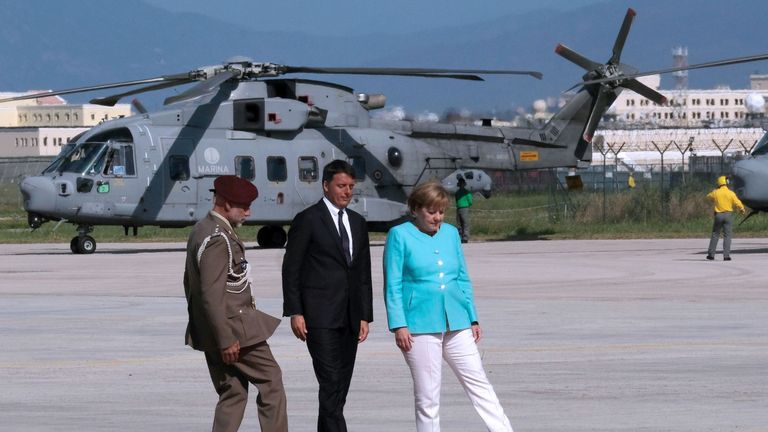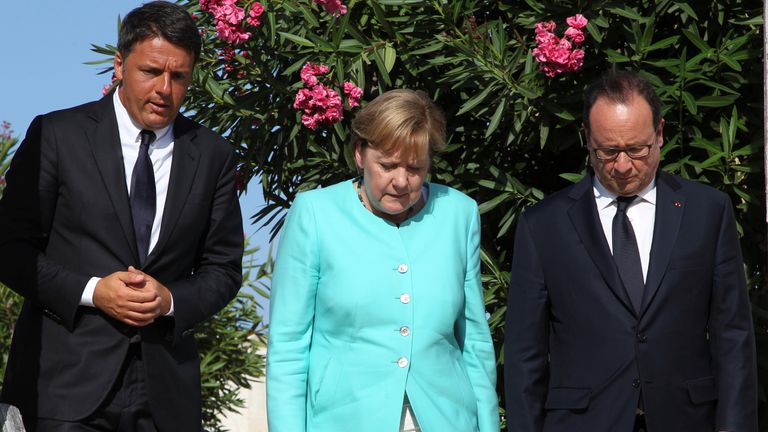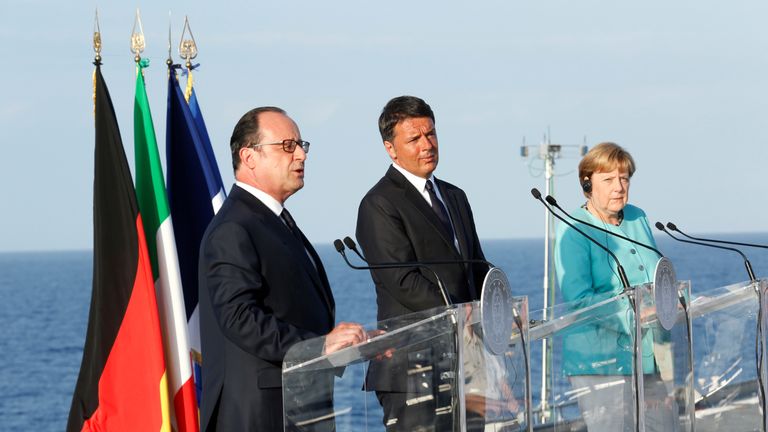Former Fascist Prison Island Is Venue For Post-Brexit EU Talks
Leaders of the biggest three Eurozone countries arrive on a rocky outcrop by helicopter to discuss the future of the EU.
Tuesday 23 August 2016 11:53, UK
An isolated outcrop of rocks forty miles off the coast of Italy; it is hardly an obvious location to choose for a discussion on the European Union's future.
And yet, the leaders of Europe's biggest three Eurozone countries arrived on Ventotene Island by helicopter for a meeting that is supposed to help shape the direction of the continent post Brexit.
It is certainly a change from the blandness of Brussels where these meetings usually take place. But why Ventotene?
Because for European federalists it is a place of huge symbolism.
In World War Two, the island was a prison. Benito Mussolini used it to lock up those who questioned his Fascism.
Among them, two Italian intellectuals - Altiero Spinelli and Ernesto Rossi.
:: European Leaders Outline Vision For Post-Brexit EU
From their cells on the island, together they wrote what became known as the "Ventotene Manifesto"; an early call for the unification of Europe against the fascist dictatorships of Mussolini and Adolf Hitler.
The document, whose full title was "Towards a Free and United Europe", argued: "The question which must be resolved first, failing which progress is no more than mere appearance, is the definitive abolition of the division of Europe into national, sovereign states."
Spinelli is buried on the island. The three leaders visited his grave and laid a wreath to a man whose place in the history of the EU is so significant, the European Parliament building in Brussels is named after him.
The President, the Chancellor and the Prime Minister did not quite call for Spinelli and Rossi's United States of Europe as a reaction to Brexit, but they did call for a united Europe.
With the island as a backdrop, and with the cameras rolling, they warned of the new dangers Europe faces: nationalism, political polarisation, xenophobia, and a rumbling euroscepticism.
French President Hollande warned Europe faced "fragmentation and division".
German Chancellor Merkel said that the EU had been born out of the "darkest moments" of Europe's history.
"Many thought the EU was finished after Brexit but that is not how it is," Italian Prime Minister Renzi proclaimed. "We want to write a better page (in European history)."
Their overriding message was one of unity. Brexit did not signal the beginning of the end of the Union, but the start of a new beginning they said.
For the more sceptical observers though, the day may have been a metaphoric gift.
After all, Europe's three most important leaders, all of whom are struggling in their domestic polls and battling a growing euroscepticism, were delivering a message of unity over isolationism, but were themselves isolated on an island miles from anywhere.






